-
The Top 4 Infant Care Centres in Singapore
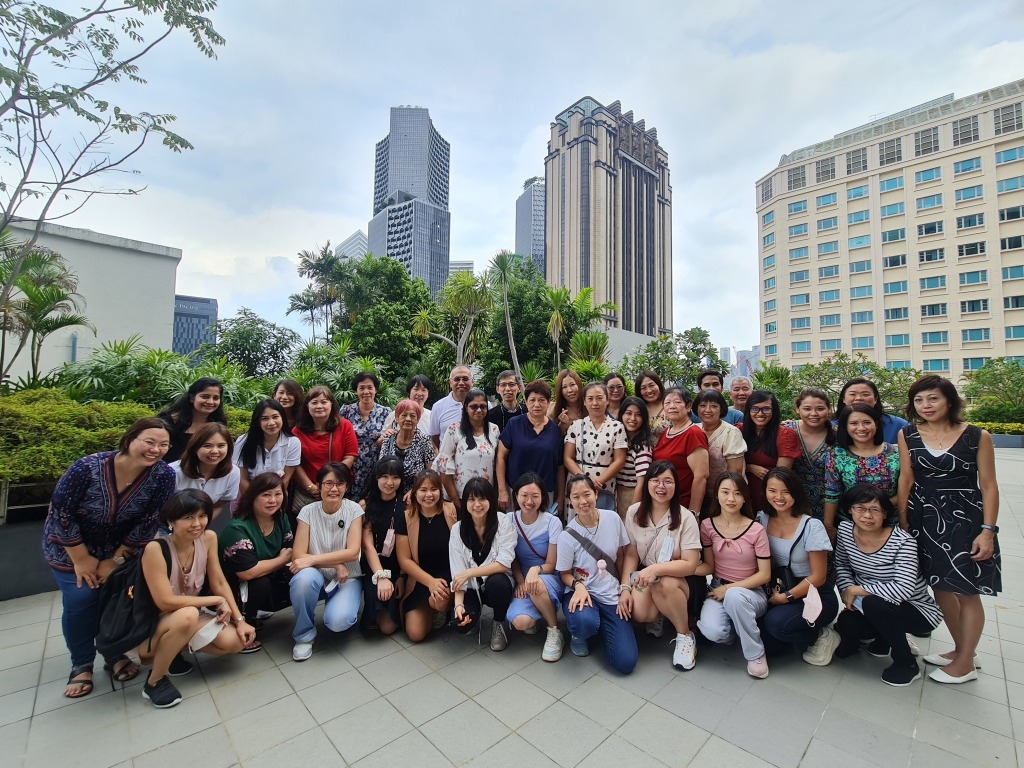
Choosing the right infant care centre in Singapore is a crucial decision that shapes not only your child’s early development but also sets the foundation for their educational journey.
That’s why every parent knows that this is easier said than done! Apart from the hundreds of options to go through, you also have to take into account a number of things, such as cost, location, facilities, and curriculum, among others.
To make things easier for you, we’ve made a quick rundown of the top infant care centres in Singapore that can give your child a wonderful learning experience.
Read on below for a quick introduction to each centre!
1. My Little Campus
We’ve heard many positive stories from parents who sent their children to My Little Campus, so we had to check them out!
Open to children two months to six years old, the centre follows a holistic early childhood curriculum that targets key development areas, including cognitive, social, emotional, speech and language, and fine and gross motor skills.
The curriculum aims to develop each child’s skills holistically, so their social skills will be given as much attention as their numeracy and literacy skills.
Each day starts exactly how children would like it: an engaging storytelling session that prepares them for a day full of fun activities ahead. Oftentimes, the class breaks out into a song and dance to keep their energies up.
For hands-on parents out there, you’re going to like that My Little Campus makes an active effort to build relationships with parents to involve them as much as possible in their child’s learning journey.
2. MindChamps
MindChamps is one the most renowned infant care centres in Singapore, with multiple locations scattered across the island. If you’re looking for accessibility, you’ll get it here!
This is good news for parents who want an infant care centre that is either near their home or workplace. Going to the centre to drop off and pick up your child won’t eat up too much of your time.
When it comes to the curriculum, its infant care programmes expose children to activities that develop their sensory, motor, intellectual, and emotional skills. The 1:3 teacher-child ratio is also followed to make sure that every child receives adequate care and attention from teachers.
MindChamps also requires every hired teacher to undergo 200 hours of early childhood education training before being allowed to handle a class, including the experienced ones!
Lastly, sending your child to this centre will make their transition to preschool smoother because the infant care area is adjacent to where the preschool is!
3. My First Skool
Another infant care centre in Singapore that can give you accessibility is My First Skool. It’s one of the largest operating local preschool brands with more than a hundred branches islandwide.
It makes sense why it’s the top choice for many parents in Singapore, but there’s more to it than its far-reaching branches.
We particularly like its relationship-based approach to education, which isn’t something you normally see in local infant care centres. It follows a curriculum that emphasises building positive and healthy relationships with kids their age and other adults.
My First Skool believes that when children are comfortable with their environment and the people around them, learning happens.
As a parent, expect to be invited to meetings and events as is their way to foster a close relationship with you. Use these as an opportunity to ask about your child’s progress and if there are any areas you can support them in at home!
4. M.Y World
M.Y World may not be as popular as many of the infant care centres in Singapore, but it earned a spot here for its team of experienced and supportive early childhood teachers!
Its infant care programme is rather focused on guiding children to create positive and strong relationships with their classmates and other adults through free play and regular interactions.
The primary goal is to train children to become effective communicators at a young age because a child who knows how to communicate is a child with a stronger sense of their identity.
-
5 Tips When Choosing the Best Infant Care Centre in Singapore
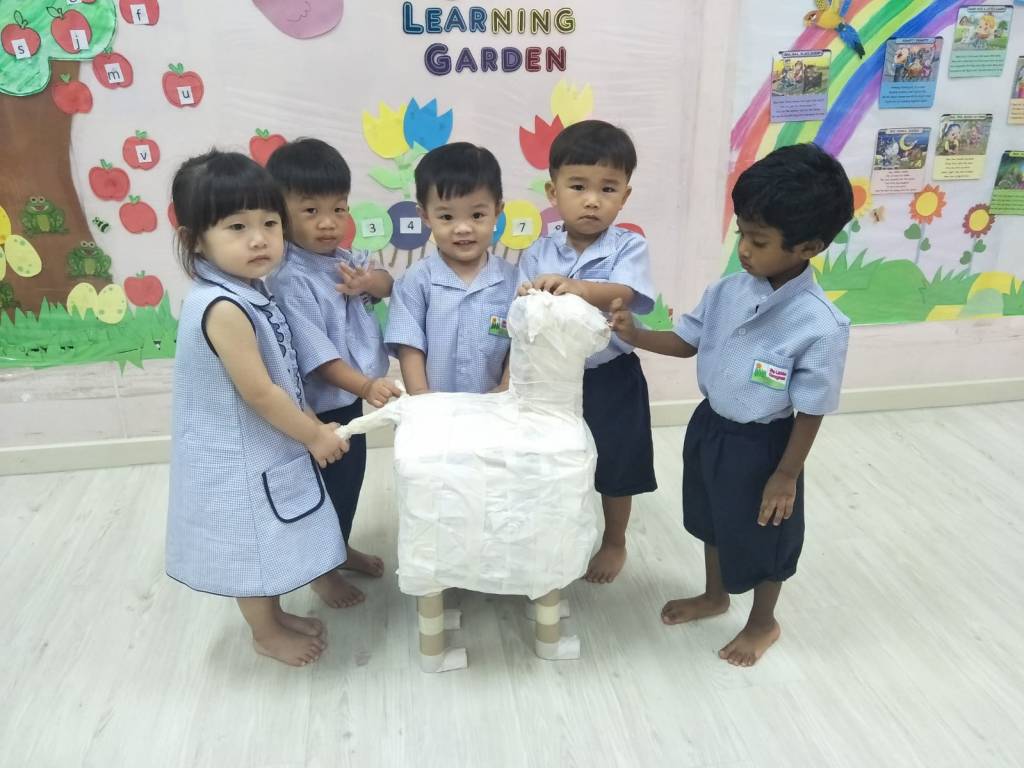
Deciding the right infant care centre in Singapore for your child never comes easy, first-time or not. It seems that the stress and anxiety that comes with it is a rite of passage for every parent!
The environment that children grow up in plays a huge role in their development. This makes it all the more necessary to find the perfect infant care centre for your little one to provide them with the appropriate care and stimulation.
To help you out, here’s a list of considerations to keep in mind as you comb through the island in search of the best infant care centre in Singapore!
1. Visit the infant care centre twice if possible
Take time out of your day to visit the infant care centre with your little one! This will give both of you the chance to see how things are run daily.
Ask if you can observe during the “free play” time for 30 minutes. Watch not only how your child behaves, but also how the other kids interact with each other and how the staff discipline them during playtime.
Are there enough teachers looking after the children? Are there any learning materials that provide stimulation to infants and help to develop their motor skills?
We recommend dropping by around 4 PM to 5 PM when other parents are usually picking up their children after work. Use this as your chance to talk with them about their experiences with the centre!
If you have time for a second visit, do so unannounced! This will give you a casual and real feel of what the centre is like during school hours.
2. Look into their curriculum
Infant care centres across Singapore follow different curricula. It’s not always easy to understand what each one means, but it should always be comprehensive and age-appropriate.
When it comes to childcare curriculum, it’s often focused on promoting knowledge and curiosity through exploration and nurturing essential life skills.
During your visit to the infant care centre, try to ask them about their curriculum and how it helps align children’s learning and development to the highest standards.
For example, one of the core of My Little Campus’ curriculum is preparing children for Singapore’s rigorous formal education. This means that students will be exposed to high-level Maths, Science, and English concepts as early as possible.
3. Enquire about the daily feeds
In the first six months of your baby’s life, milk will be an essential source of nutrients for their little, growing bodies.
That’s why we strongly suggest that you check with the infant care centre about their approach to preparing and feeding milk to infants.
The good news is that most infant care centres in Singapore are supportive of breastfeeding mummies, so don’t worry too much about how your expressed breastmilk will reach your little one. You’ll be surprised to know that most teachers know what to do!
While you’re at it, try to enquire about their meal plans and if they’re able to cater to your baby’s daily dietary needs.
4. Familiarise yourself with the centre’s policies
Any parent wants to send their child to an infant care centre that shares their parenting philosophies on several things.
Ask them about their discipline policies to find out how the teachers deal with children’s certain behaviours. Try to give them a few scenarios relevant to your child to see how the teachers would usually respond.
The more questions you ask now, the earlier you’ll determine if the infant care centre is the right place for you and your little one.
5. Consider the centre’s community
One thing you should never forget while scouting for infant care centres in the community! What do you and your child feel about the centre after your visits?
Try to observe not only how the teacher interacts with children but also how the other staff interact with children and teachers.
Just a friendly reminder that you’re not picking an infant care centre only for the teachers and facilities. It’s every person in that community who makes up each child’s infant care experience.
-
Kindergarten in Singapore: What age is right for your child?

One of the top questions parents have is about the recommended kindergarten age in Singapore. Specifically, what age should your child be when he or she starts K1?
The obvious answer seems to be anywhere from 4 to 6 years old. This is the age most preschools in different countries peg as the kindergarten age and it’s when most of us actually enter preschool.
The Singapore MOE or Ministry of Education itself lists K1 and K2 preschool programmes as ones for children aged 5 and 6, respectively. It also describes preschool as a stage of education meant for children under the age of 7.
But even if we follow this age range – 4 to 6 years old, that is – the question remains. Which of these specific ages (4, 5, or 6) should you consider the right one to have your child enter kindergarten?
What does research say is the best age for kindergarten?
It can be difficult to draw conclusions from the research on this topic, as most of the published studies are from the US, which has its own educational systems, culture, etc. However, it’s not unreasonable to look at what those studies say for some insight.
This is especially so given that there seems to be increased interest in the US for “redshirting”. This is the term for the process of delaying a child’s preschool entry by one year, or to age 6 instead of 5.
So, what does the research say? Unfortunately, nothing conclusive.
Yes, some found that seventh-to-ninth-grade academic achievement indices favoured later-entry preschoolers, for instance. Others found the benefits to carry even further into the children’s academic journey.
Meanwhile, other studies found that chronological age entry made no difference in things like reading test scores, or even overall.
Part of the problem too is that there are no truly randomised, controlled studies for this yet, which means parents are advised to take numbers from such studies with a grain of salt for now.
How can you tell if your child is ready for kindergarten?
Naturally, one choice is to simply follow the tradition, which is to have a child start kindergarten at age 5 and hope that years of convention actually bear wisdom here.
But for parents who want more assurance on whether or not their children are ready for K1, it may be necessary to give the matter more thought before the decision.
We’ve talked about this before in our article on figuring out if your child is ready for kindergarten. We can repeat the core of our advice from that article here, which is that it ultimately depends on your child’s developmental age.
Simply put, if you feel that your child’s development is seriously behind that of others his age at the moment, you may consider delaying his start by another year. Signs that this might be wise could include these:
- Significant underdevelopment of awareness and self-care skills
- Social underdevelopment, especially in group interactions
- Speech and comprehension underdevelopment
- Social or emotional trauma that has yet to heal
That being said, most of these can be addressed with the right attention and care from a good kindergarten-teacher-and-parent team.
At My Little Campus, for example, we invest heavily in the centre-parent relationship. By sharing feedback and insight with each other, we can collaborate to nurture happy and confident children.
Our incorporation of a play-based pedagogy also helps children transition more smoothly from nursery to K1, while our activity-based lessons lay the groundwork for a lot of core skills, including social ones. This, combined with our holistic approach, creates well-rounded learners and covers all bases.
If you want to learn more, contact us to discuss whether your child should enter our kindergarten programme or not. You can also consult our other articles on kindergarten and preschool.
-
How Much Do Preschools in Singapore Cost?
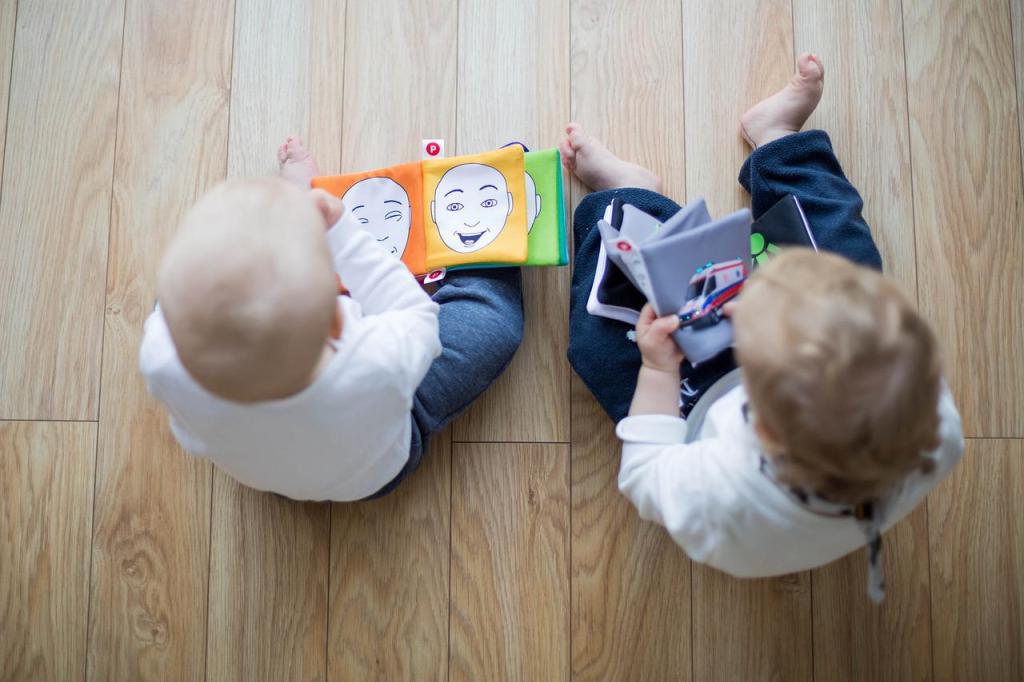
As the number of double-income households in Singapore increases, more parents are becoming open to enrolling their children in preschools so they can focus on work during the day.
Sending your child to a preschool means you have to set aside a hefty sum of money because childcare fees are on the rise in Singapore.
To give you an idea of preschool fees in Singapore, we break down the costs of preschool education and the options for subsidies that parents can explore.
Preschool landscape in Singapore
There are 3 main types of preschools in Singapore:
- Government preschools – government-controlled programmes with lower fees due to subsidies
- Private and international preschools – owned and operated by companies and charge higher rates; follow an external curriculum and develop their own programmes
- Early Childhood Development Agency’s (ECDA) Anchor Operators – childcare centres regulated by the government to keep fees affordable
These preschool options are open to children aged 18 months to 6 years old. Apart from setting the foundations of lifelong learning, early childhood education children transition into Singapore’s rigorous education system.
When it comes to preschool fees in Singapore, they vary between different types of childcare centres:
Programme Full day (7am to 7pm) Half day (4 hours) MOE Kindergarten $300 to $390 $100 to $150 ECDA Preschools $700 to $750 $160 to $200 Private and International Preschools $1,600 to $3,000 $800 to $2,000 Preschool subsidies in Singapore
Here’s some good news: despite the rising costs of childcare in Singapore, subsidies are offered to parents whose children are enrolled in approved childcare centres.
The basic subsidy is $600 per month for full-day childcare and S$300 per month for full-day infant care.
If you’re a working mother with a gross monthly income of less than $12,000, you can apply for the additional subsidy of $80 to $467 through the Kindergarten Fee Assistance Scheme (KiFAS)
For low-income families, you may apply for an annual grant to cover initial preschool expenses in approved childcare centres. To qualify for higher subsidies, you may opt for your income to be assessed if you’re a family with five or more members.
Other preschool costs in Singapore
Apart from tuition fees, you can expect a handful of miscellaneous expenses once your child has started preschool.
Here’s a list of additional expenses that you’ll have to squeeze into your preschool budget:
- Daily transportation. If dropping off and fetching your child will no longer be possible, then you might have to opt for daily school bus transport which costs about $100 to $200 per month.
- Textbooks. Once your child is in nursery and kindergarten, they will need books for each subject, including English, Maths, and Science, among others.
- Uniform. Most preschools in Singapore require uniforms. The cost of each uniform set usually ranges from $20 to $60.
- School trips. Excursions help children learn outside of the classroom and embrace new environments. The average cost of school trips is around $50 to $70, depending on the location.
Conclusion
Quality education is one of the best gifts you can give to your children. Although this means shelling out a considerable sum of money and carefully planning your finances, it’s nothing compared to the joy of seeing your child be the best version of themselves at a young age.
As education costs in Singapore continue to rise, it’s essential to plan and tuck away money for school fees, and extra cash for additional expenses like daily transportation, textbooks, uniforms, and school trips as early as now.
-
The Top 4 Kids’ Nursery in Pasir Ris
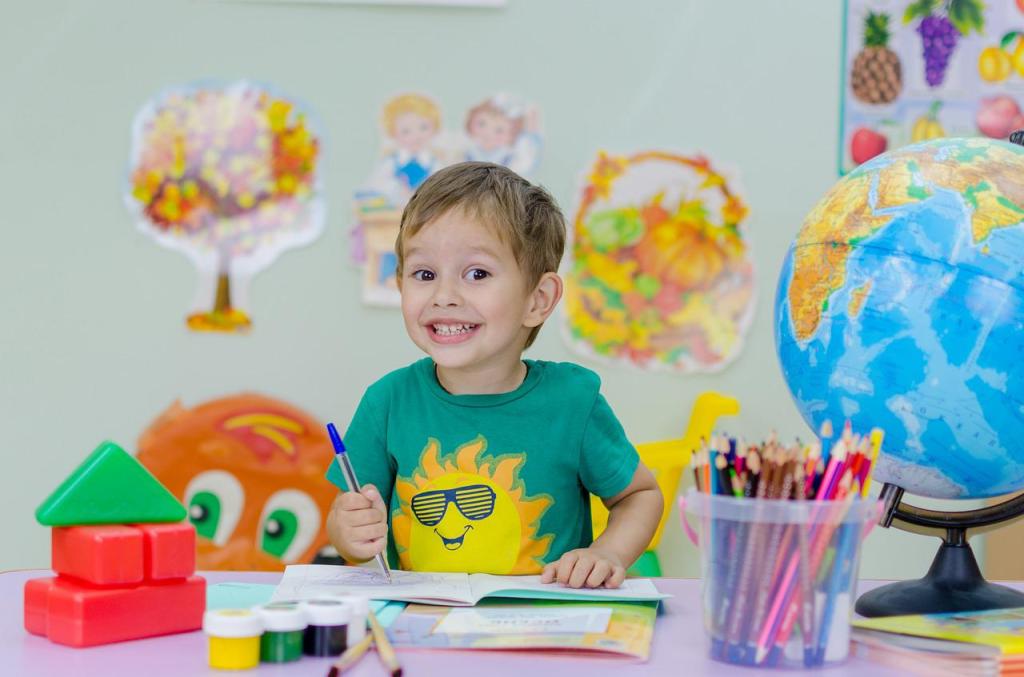
Looking for a kids’ nursery or preschool in Pasir Ris that can nurture your little one to the full potential? Well, you’re in luck as we’re here to share our quick guide to nurseries in Pasir Ris to help you choose the best one for your child.
We know that finding the right preschool in Singapore is no easy feat. The good news is, that there’s definitely a place that matches your parenting style, and we’ve done the legwork for you.
Read on below to find out your possible nursery options!
- Modern Montessori International
With multiple branches scattered all over the island, including in Pasir Ris, accessibility isn’t going to be a concern with Modern Montessori International (MMI).
It’s a nursery that provides children aged 18 months to 6 years old with a modern Montessori curriculum, one that is tailor-made by qualified early childhood educators to meet children’s needs.
Through its child-centred philosophy, lessons are given individually or in groups, allowing children to learn at their own pace.
Among the subjects taught here are phonics, maths, sensorial education, cultural and practical life, and languages. Creative expression is also encouraged through art, craft and drama classes.
Speaking of languages, this kids nursery in Pasir Ris trains children in a trilingual environment, teaching English, Japanese, and Mandarin.
- My Little Campus
My Little Campus (MLC) isn’t your ordinary preschool in Singapore. Its nursery classes are designed to provide classroom experiences that stimulate the 5 senses of your child, helping develop their skills and abilities.
MLC’s approach focuses on holistic development to accommodate every aspect of your child’s growth, from fine motor skills to social skills.
It doesn’t just focus on academic strengths, it pays attention to how your child learns empathy, independence, curiosity, and confidence as well equipping them with essential skills needed in the future.
As with most kids’ nurseries in Pasir Ris, MLC nurtures bilingualism through its English and Mandarin classes, helping young learners realise the importance of speaking more than one language.
Another thing about MLC is how it creates strong relationships between parents and teachers. As a parent, you’re going to be as much involved in their development at school as you are at home.
- The Little Skool-House
With 27 years of experience, The Little Skool-House has proven itself to be a force in early childhood education in Singapore.
First off, it’s the chosen preschool for some of Singapore’s most prestigious institutions. On top of that, its childhood educators have received numerous awards from the Ministry of Education in the past years.
Unlike other kids’ nurseries in Pasir Ris, The Little Skool-House follows a relationship-based curriculum for infants and 3 years olds. It believes that strong and responsive relationships are the key to healthy brain development.
Its unique pedagogy enables young students to learn self-confidence and independence first and use them as a foundation for developing a sense of self, communication and social skills, and sensory and motor skills, all under a bilingual environment.
- Bright Kids
Affordable quality childhood education can be difficult to come by in Singapore, but Bright Kids proves it doesn’t need to cost a fortune.
Its thematic approach to teaching and learning ensures holistic development for young students aged 18 months to 6 years old, helping them succeed later on in school and life.
Focusing on phonetics, nursery students get to develop their language and literacy skills first, serving as the foundation for other learning areas.
A day at Bright Kids involves a lot of interaction with other children through circle time and storytelling sessions. It provides a loving and safe environment for young learners to develop and discover their academic, social, and emotional strengths in the company of their friends.
-
How to Take Care of a Newborn Baby: Basic Tips
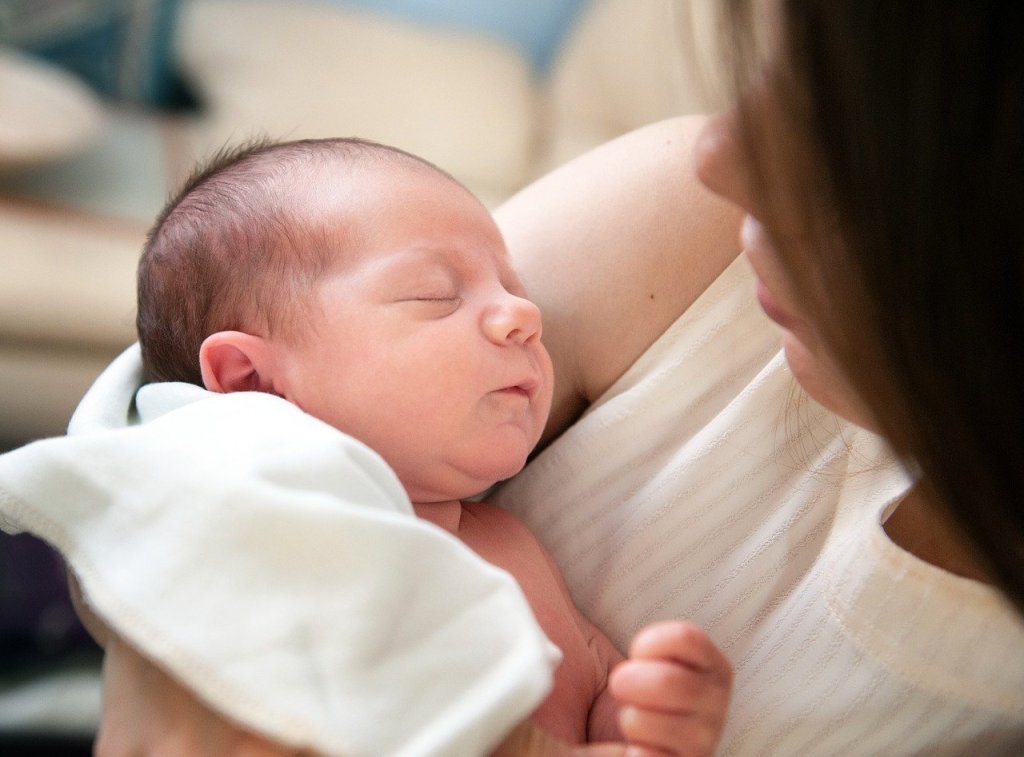
Caring for a newborn baby is among the most rewarding yet also frightening things in the world. These little bundles of joy are so small and delicate that it’s only natural to feel nervous about hurting them by making a mistake.
Fortunately, we have literal millennia of wisdom about newborn care by now, passed down from generation to generation. Today, we’ll mine this cache of information for some of the best tips for infant care in Singapore.
Tip 1: Feed the baby every 1 to 3 hours.
The rule of thumb is to feed your newborn baby often, with the minimum number of feedings per 24 hours being 8.
That may sound like a lot, but remember: your baby’s little stomach can’t actually hold that much food in it yet. And your baby actually does need quite a bit of nutrition, because babies tend to lose a bit of weight after birth.
This particular rule applies whether you’re breastfeeding or using formula, by the way. If you’re doing the latter, aim for about 30 to 60 millilitres per feeding.
Tip 2: Keep the baby (and everyone nearby) clean.
As far as your baby goes, this means you should bathe your baby enough to keep him clean but not enough to harm his skin. Generally, that translates to about 1 to 2 times a week.
Stick to sponge baths before the umbilical falls off, though. After that, feel free to use a basin, but bear in mind that spot-cleaning and wiping is also viable for most situations.
In line with keeping your little one clean, of course, you want to make sure everyone who has contact with him is similarly hygienic. This is especially important for newborns, whose immune systems are still developing.
Set clear ground rules for anyone who wants to hold or approach the baby. They have to be clean, should wash their hands and faces first, and so on. At the moment, you may even want to specify facemasks, for safety.
Naturally, if they feel at all under the weather, ask them to stay away for now. It’s best not to risk anything and they should understand.
Tip 3: Try to mimic the womb to soothe a fussing infant.
We’ve already seen that a lot of babies tend to calm down when being held, rocked gently, or even kept (comfortably) warm. This may be because these sensations simulate ones they experienced in the womb.
Feel free to try things like these, along with swaddling and humming, to soothe your infant when he’s being a little testy. It may well soothe his nerves (as well as yours!).
Tip 4: Don’t give your baby toys, pillows, or any type of loose bedding when he sleeps.
All of the above are actually hazards for newborns. This is one of the most important tips to remember when talking about infant care in Singapore because it can have a direct impact on your baby’s health.
Items like the ones we mentioned are best used when a baby is old enough to not be at risk for SIDS (Sudden Infant Death Syndrome). Generally, it’s best to wait until your baby is around 1 year old or more.
Tip 5: Learn to take care of yourself in new ways.
You’ll have to adopt a new routine with an infant in the house, of course. Between the feedings every 1-3 hours and the need for regular diaper changes, new parents can easily find themselves exhausted and overwhelmed.
That’s why it’s vital to learn how to care for yourself as a parent in your new routine. That means doing things like learning to sleep (or nap) when your baby sleeps. Work out a schedule where you and your partner can take turns caring for the baby and resting.
Keep yourself fuelled with nutritious food and water so you can better weather the demands of this stage of parenthood. Ask for support when you think you need it – and feel free to talk to someone if you need emotional relief.
All of these things can help you better adjust to life caring for an infant. If you can care for yourself properly, after all, you’ll be better-able to care for your little one.
-
Subscribe
Subscribed
Already have a WordPress.com account? Log in now.